| DIVUS BERLIN: Stu Mead book launch in bar Sofia | |||||||||||||
|
|||||||||||||
Stu Mead book launch in bar Sofia12.12.2015 20:00DIVUS BERLIN | en |
|||||||||||||
Bar Sofia: Wrangelstr. 93, 10997 Berlin, Germany ...After two years of digging in Stu's American and German archives, the first comprehensive book of his paintings and drawings is finally done. Come see it and meet Stu Mead rarely in person.- - - - - - - - - - - - - - - - - -
At the end of history, at the close of the story of the West that conservative visionaries have been promising, we must publish all the things we have dreamed of even if it might face universal rejection. The people who will be going through the ruins of our civilization should know what we were thinking about, what shaped our opinions and determined our actions – just as we know that ancient Greece was more than a rhetorical exercise and an oasis of puritan civic democracy. This book is being published at a time when war is again more moral than a sexual orgy, a woman cannot beat a man with impunity, America no longer understands Dada and is turning into Sparta, England does nothing other than build houses and make pop music, France has forgotten why it once admired the Marquis de Sade, and Germany is so proper that it prefers to do nothing at all. Excerpt from text by Ivan Mečl
They are the sweetest girls one could draw, with little dresses, bows, panties; little girlfriends of Hans Christian Andersen or Lewis Carroll. Little witches who gather power the way some people gather mushrooms. Little girls who see their bodies as something natural. They don’t choose what they see: something that is new for them, inartificial,natural, ungrasped. And they learn to grasp it. To firmly grasp in their little hands the hems of their panties and the penises of large men. Plush animals held in a tight embrace are suddenly capable of giving other pleasures as well. After a while, our senses are so aroused that all it takes is a painted bear with a whistle and a bunny watching a girl by the fireplace with a yearning look on its face, and our minds imagine a zoophile group sexsession all on their own. Even the devil is shocked by the girls, and for good reason. Stu’s pictures are an authentic depiction of that rare moment when a girl discovers her power, which is contained not just in her genitals. In Music School, one girl is sitting apart from a trio of fussy-looking friends. She is slouched in her chair, legs spread wide, playing a violin without a bow, hollering with all her might. Stu says that she has just discovered jazz. Which could be the same as sex. And vice versa.
As sometimes happens to other artists whose subjects are in the transitional period from childhood to adulthood, there are people who find that Stu’s art exists on the boundary of what is legal. These charges are an unconscious and civilized way of masking the deeper taboo of the inviolability or untouchability of beings in transition. But Stu does not view himself as such a being: “I identify with the girls in my paintings. And I also identify equally with the boys and men (who often look like me) as well as the horses, cows and dogs. I’m a handicapped man, but still I’m a man. I’m not outside gender categories. I am not ‘in transition’. I’m just an artist with a perverted imagination trying to make good paintings.” Excerpt from text by Lenka Klodová
12.12.2015 20:00
Doporučené články
|
|||||||||||||
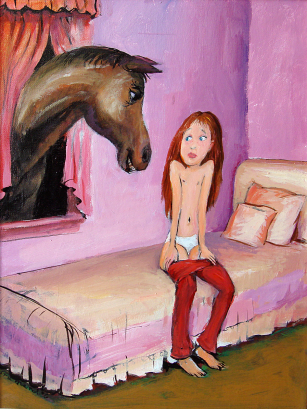



















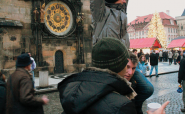
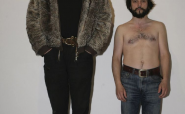
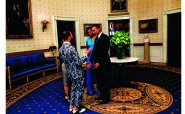
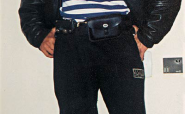
Komentáře
Článek zatím nikdo nekomentovalVložit nový komentář